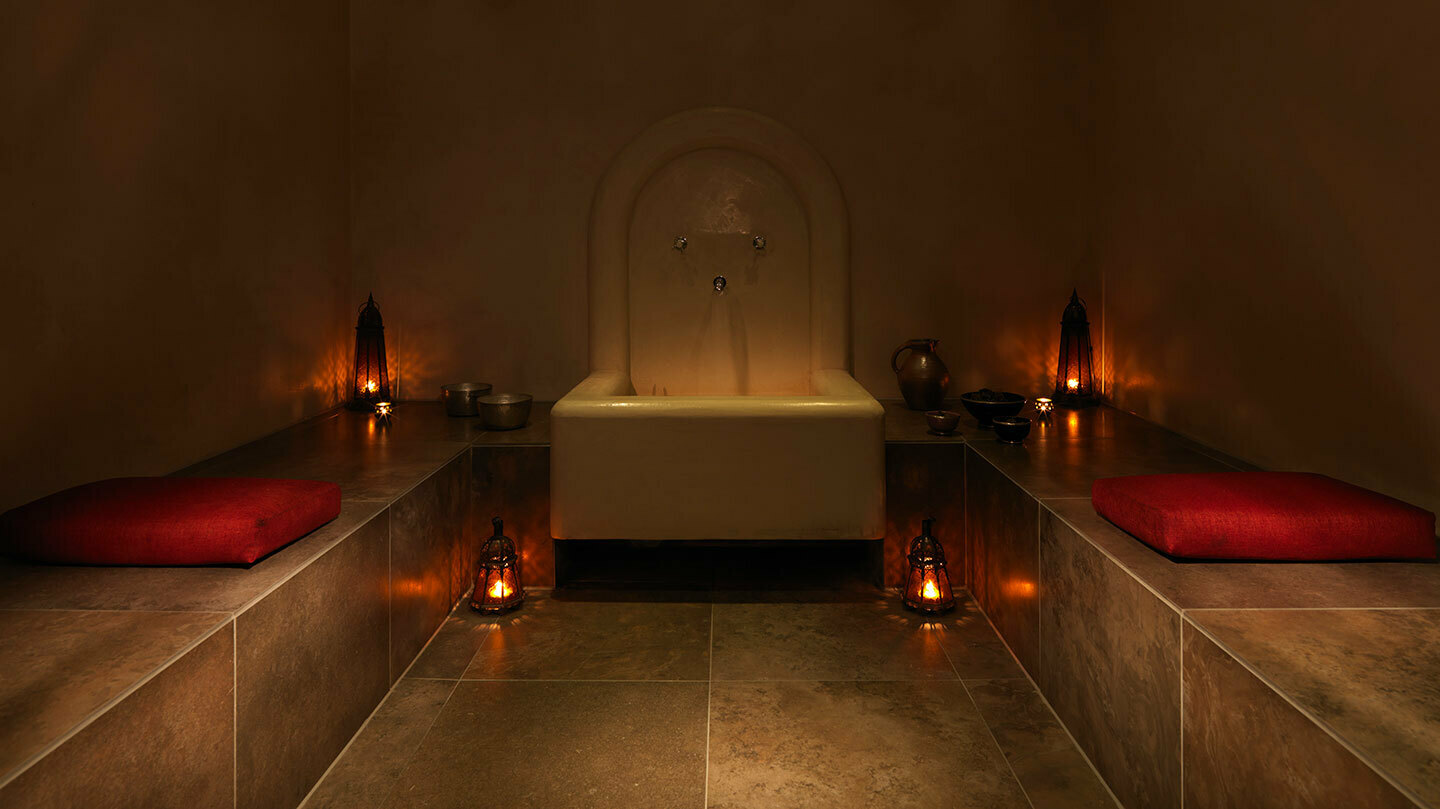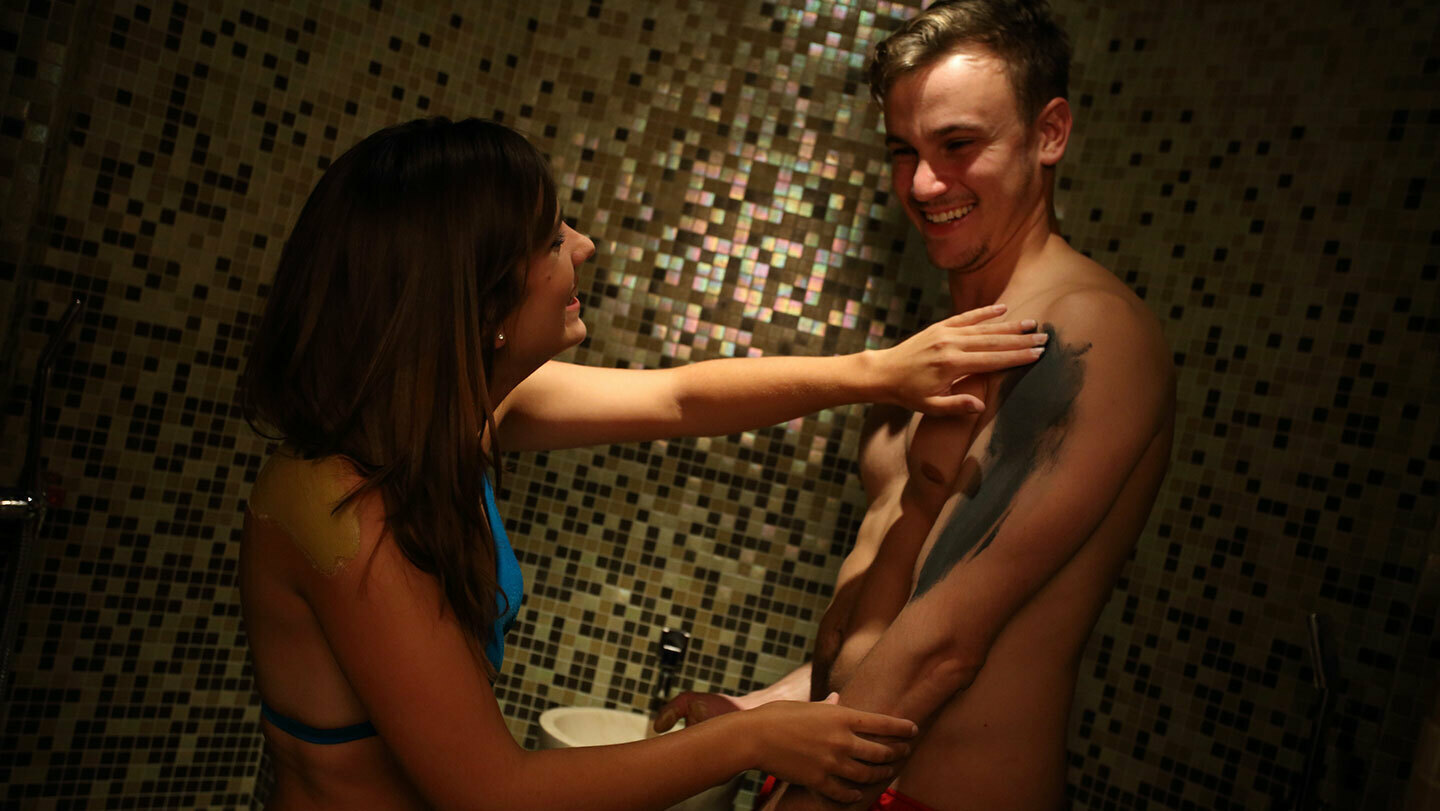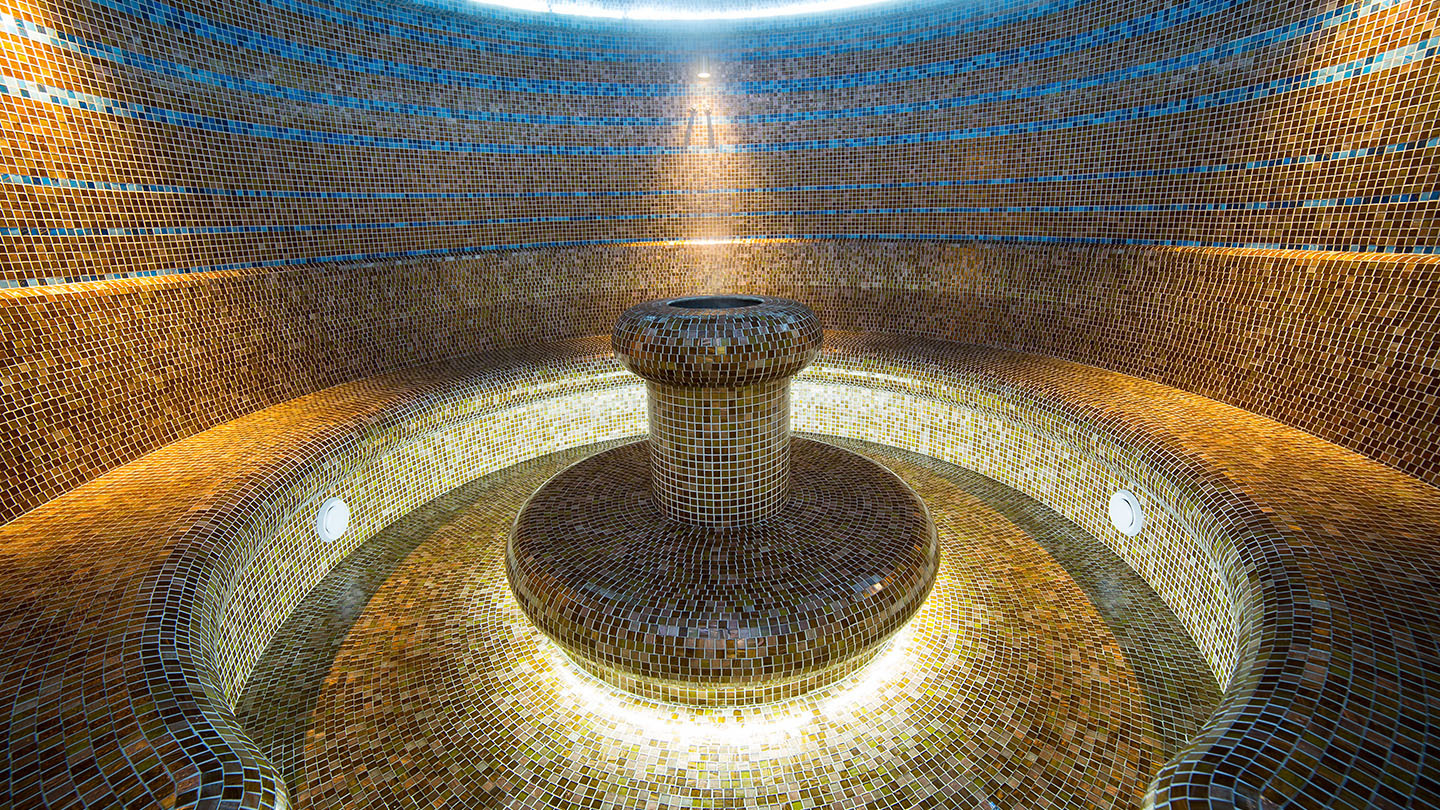Many spas have hammams, rasuls, rhassouls and serails on their treatment menus. But what exactly are they, and why should you book one?
First things first - hammams, rasuls (also spelled "rhassoul") and serails are all kinds of steam room. They are tiled, and generally quite dimly lit, and - at a spa anyway - usually seat up to four people. In a spa, they are often used for mud treatments: you coat yourself in different kinds of mud, and then go into the serail/rasul steam room to open your skin pores and soak in all that mineral goodness.
In UK spa-terms, "hammam", "rasul", "rhassoul" and "serail" usually describe a single room, with central water taps, and recessed bench-seats, decorated in blue, silver and gold-tinged tiles in the style of the Turkish Ottaman baths. They are sometimes referred to as "chambers" (serail mud chamber treatments, for example) but don't be alarmed; they are more like exotic luxurious grottos.

A hammam can be either one tiled steam room, or a suite of steam rooms and pools for communal use.
In a more traditional Turkish hammam, you will find many different rooms and chambers, each offering different water-based benefits, similar to the Roman baths. There is often a proposed order for using the facilities to gain maximum benefit. Your visit may include a luxurious and rigorous soap-wash, and a short massage with essential oils.
Part of community facilities, a trip to the hammam may well not be viewed as a luxury, and men and women may go relatively often to a hammam to bathe with friends and relatives. A hammam is usually single sex. You can spend the whole day in one of these; it's a great, inexpensive experience if you're on holiday in the right place.
Hammam-style baths can be found not only in Turkey, but also in Arabic, North African and even Eastern countries such as Korea.

A rasul or serail is the venue for a traditional Arabian body treatment involving steam and mud. Rhassoul is natural mineral clay mined from the Atlas Mountains in Morocco, and, mixed with water, has been used for centuries by African women to care for their skin and hair.
A rasul treatment uses healing mud or clay from all over the world. You may be given a tray of different muds, each appropriate for your face, body or hair. Slathered in mineral-rich muds of various colours, you sit in a tiled steam room for around 15 minutes and feel the mud soften into your skin. Afterwards, you are either douched by a therapist or else shower yourself down in cool water. Some rasul chambers have timed showers after the steam has cleared, which can be a bit of a surprise! This not only cleans off the mud, but also wakes you up and brings down your body temperature.
It sounds a bit odd perhaps, and it is an unusual experience for sure, but it's also a deeply sensual spa treatment, and it's also good fun. After, your skin should feel silky and nourished.
A rasul or serail mud treatment is really a great way of soothing and warming your muscles and softening your skin. A pampering treatment that is great for boosting wellness. It's a great pampering treatment for priming your body for a massage which will then be more effective, as the therapist can get deep into the warmed muscles more easily. It also leaves your skin feeling very soft and "plumped", as it has been deeply cleansed and has absorbed lots of moisturising minerals. It leaves you feeling both very relaxed and wide awake.
If you would like to visit the Hammam in the first image you can find it in The Spa in Dolphin Square. If you would like to expereince the rhassoul in the second image, you can find it at The Spa at Bedford Lodge Hotel.

Summer Spy
11th April 2014
Spy Likes:
Warmth and sunshine; spas which take me away to another country; fruit infused waters; beach-worth pedicures; deep tissue massages.
Spy Dislikes:
High footfalls; treatments that over promise and under deliver; heavy lunches; loungers drapped in used towels.
